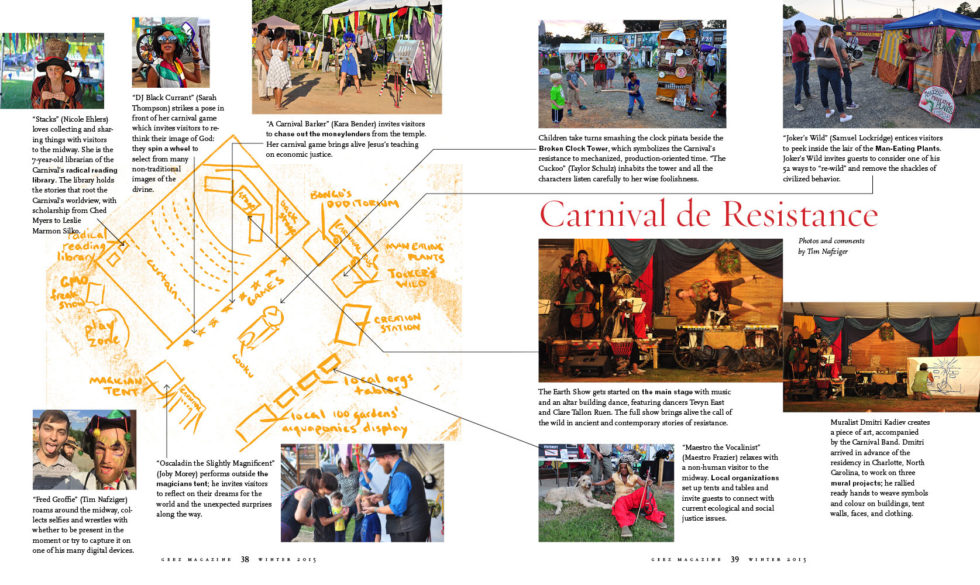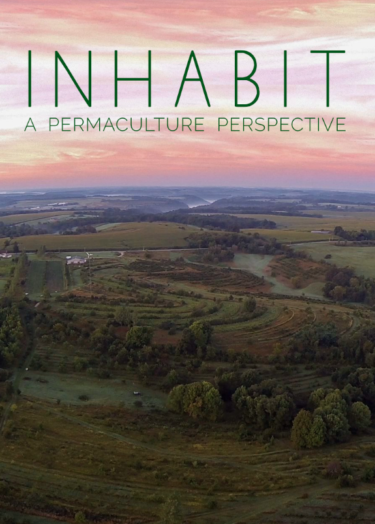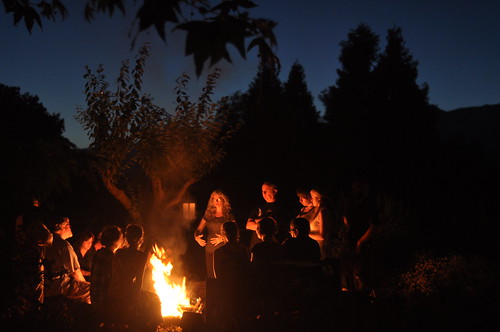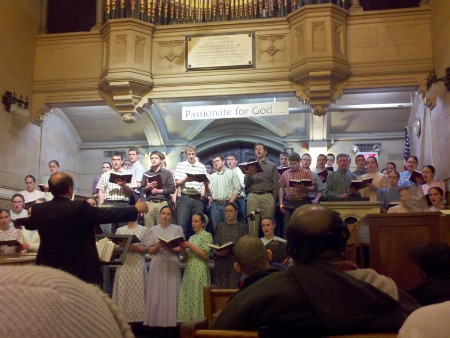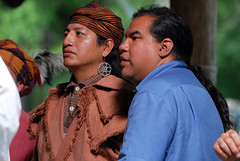Mountainhead Glossary and Further Reading: Accelerationism, Longtermism, Doomers, Decels, Technofeudalism and the Shield of Boringness

This piece was originally published in Geez Magazine, Spring 2024 issue as “Further reading: Generative AI and Artificial General Intelligence.” I am adapting the piece after watching the movie Mountainhead which references many of the concepts in this piece. Key concepts and terms are in bold and italics.
In understanding Mountainhead, it is useful to distinguish between generative Artificial Intelligence and Artificial Generalized Intelligence (AGI).
Generative AI is an existing technology that creates text or images based on prompts and are often Large Language Models trained on vast amounts of data. ChatGPT, Stable Diffusion and Midjourney are prominent examples of this software.
Artificial Generalized Intelligence (AGI) is a hypothetical future technology that can fully replicate any human mental ability. AGI does not currently exist, but appears widely in movies, perhaps most famously as Skynet in the terminator movies.
As the summaries below lay out, much of the conversations today are about whether current developments in generative AI technology indicates that we are close (or closer) to developing AGI.
Can Humanity Survive AI?, Garrison Lovely, Jacobin Magazine, Jan 22, 2024
https://jacobin.com/2024/01/can-humanity-survive-ai
Lovely gives an up to the minute historical overview of emerging schools of thought around AI.
There are two movements raising the alarm among deep learning scientists and AI leaders that are important to understand.
The first is the AI safety or “doomers” camp that warns AI puts the future of humanity at risk. They are concerned about “an irreversible loss of human control over autonomous AI systems” similar to the plot of the movie Terminator. Last year, Ukraine may have been the first country to use Lethal Autonomous Weapons that kill people without human oversight.
The other AI critical movement that Lovely identifies is the AI Ethics community that is focused on the more mundane ways in which current use of AI exacerbates racism, discrimination against poor people, bad labor conditions and makes the rich richer.
The hyper capitalist school of effective accelerationism (also called e/acc) is pushing for the profit driven development AGI as soon as possible to usher in a post-human future. They focus their ire on the effective altruism, (EA) a movement made famous by crypto tycoon and convicted fraudster Sam Bankman Fried. The EA movement is urging deceleration of AI development and, on this issue, are broadly aligned with the AI safety movement. Accelerationists often derisively refer to their opponents as decels from Decelerationism.

AI Won’t Overthrow Us, But It Will Optimize the Capitalist Death Machine, Kelly Hayes interviewing Paris Max, Truthout, Aug 3, 2023 https://truthout.org/audio/ai-wont-overthrow-us-but-it-will-optimize-the-capitalist-death-machine/
Abolitionist writer and organizer Kelly Hayes interviews Paris Marx of the podcast “Tech Won’t Save Us.” They lay out the AI Ethics argument that the focus on existential threat AI poses (the “doomers” referenced above) is a distraction from the way that current AI technology is exacerbating capitalism and white supremacist structures today. In other words, stoking the fear of future AI overlords is a distraction from our current billionaire overlords and an attempt to avoid regulation and critical scrutiny of current AI technology. They quote Douglas Rushkoff’s summary of billionaire’s apocalyptic doomerism: “[The ultra wealthy are] afraid the AIs are going to be as mean to them as they’ve been to us.” (Original source of quote: https://www.theguardian.com/technology/2023/may/28/artificial-intelligence-doug-rushkoff-tech-billionaires-escape-mode )
Hayes and Marx unpack the trendy philosophy longtermism as a sort of “tech religion.” Longtermism focuses on existential risks to humanity and the well being of future humans. Marx and Haye argue this is often at the expense of current humans. Longermism is closely tied with the Effective Altruism movement described above.
The interview looks at a number of other problems with current AI technology. The massive data centers of “the cloud” that ChatGPT and other generative AI models run on are having major negative climate impacts. There is also a lack of transparency in the training data for generative AI. At the end of the day, Hayes argues, “the so-called revolution that AI offers is really a hardening of the status quo.”
The Friar Who Became the Vatican’s Go-To Guy on A.I., Jason Horowitz, NY Times, Feb 9, 2024
https://www.nytimes.com/2024/02/09/world/europe/italy-artificial-intelligence-ethics.html
Self identified geek, Father Benanti, has worked with Pope Francis and the president of Microsoft on AI ethics. Benanti says that the Pope started paying more attention to AI after an AI generated image of him in a white puffer coat went viral. Francis was less interested in the technology and more in what he can do to protect the vulnerable from its negative impact. On January 1, 2024, the pope called for an international treaty to avoid a merciless future in which “inscrutable algorithms decide who is granted asylum, who gets a mortgage, or who, on the battlefield, lives or dies.”
New AI app lets users ‘text with’ Jesus and other biblical figures, Fiona André, Religion News, August 7, 2023 https://religionnews.com/2023/08/07/new-ai-app-lets-users-text-with-jesus-and-other-biblical-figures/
For $2.99 a month you can talk to a generative AI (like ChatGPT) trained to impersonate Biblical characters. In case you were worried, schlocky Christian digital tchotchkes are part of our AI future.
Justine Bateman thread, Twitter (currently known as X), May 13, 2023
https://twitter.com/JustineBateman/status/1657476895972413440
Bateman is a writer, actor and software developer. During the Screen Actors Guild (SAG) strike in the summer of 2023, Bateman wrote to her fellow union members about a possible future in which actors aren’t needed anymore, but their likenesses are used by generative AI software to create movies.
Disinformation reimagined: how AI could erode democracy in the 2024 US elections, Nick Robins-Early, The Guardian, July 19, 2023 https://www.theguardian.com/us-news/2023/jul/19/ai-generated-disinformation-us-elections
A catalog of tools that could be used by malicious actors in elections: deep fake audio and video of candidates, chatbots posing as voters, more fake news, more sophisticated voter suppression campaigns and AI driven variations on Cambridge Analytics social media psychoprofile hacking.
The Internet Con: How to Seize the Means of Computation, Cory Doctorow, Verso Books, 2023. https://truthout.org/audio/to-fight-big-tech-we-must-seize-the-means-of-computation/
Doctorow is a tech realist who sees positive and negative roles for tech while centering the problem on capitalism and the big tech companies seeking maximum profit. He is very critical of what he calls technofeudalism in which consumers sign our rights over the walled gardens of tech companies in exchange for protection. He points out how Google, Apple, Facebook and Amazon will only protect their customers when it is in their best interests.
He argues that the shield of boringness is used by tech companies to avoid effective regulation. In other words, the tremendous effort required to understand tech and laws enough to advocate deters effective advocacy to hold big tech accountable. I also recommend Kelly Haye’s interview with Doctorow in September, 2023: https://truthout.org/audio/to-fight-big-tech-we-must-seize-the-means-of-computation/
Honorable Mention
How ChatGPT Will Destabilize White-Collar Work – No technology in modern memory has caused mass job loss among highly educated workers. Will generative AI be an exception?, Annie Lowrey, The Atlantic, Jan 20, 2023 https://www.theatlantic.com/ideas/archive/2023/01/chatgpt-ai-economy-automation-jobs/672767/
Conservatives Are Panicking About AI Bias, Think ChatGPT Has Gone ‘Woke’ – All AI systems carry biases, and ChatGPT allegedly being “woke” is far from the most dangerous one. Motherboard by Vice, Jan 17, 2023
https://www.vice.com/en/article/93a4qe/conservatives-panicking-about-ai-bias-years-too-late-think-chatgpt-has-gone-woke
Team Human vs. Team Posthuman—Which Side Are You On? How Silicon Valley billionaires intentionally muddle public conversations around human extinction., Emile P. Torres, Truthdig, April 4, 2024 https://www.truthdig.com/articles/team-human-vs-team-posthuman-which-side-are-you-on/
No AI tools were used in generating these summaries or writing this article.
Featured image is an HBO publicity photo from the Mountainhead movie
June 27, 2025 Civilization, Corporations, End Times, Technology, Wealth 0 Read more >
